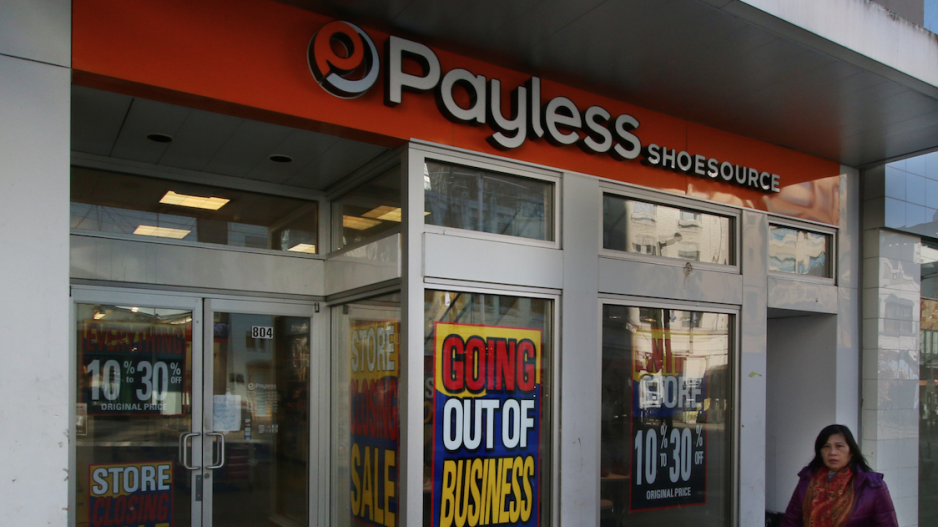While retail real estate is taking the biggest blow from COVID-19, seeking temporary rent relief can open retailers to other dangers, both legal and financial, experts say.
“How landlords respond [to requests for rent relief from retail tenants] will depend on the wording of the lease concerned, but in most cases will be a matter of judgment as much as legality,” notes a report from Alison Young.
Retail sales across Western Canada were already cooling before the virus struck. January total dollar-volume sales at bricks-and-mortar stores declined 0.4 per cent in B.C. from a year earlier.
The Prairie provinces posted average increases in the 2.5 per cent range, which trailed the national average of 3.4 per cent, according to Statistics Canada.
More than 74,000 square feet of retail space went dark in Metro Vancouver shopping centres during the second half of 2019, reported Cushman & Wakefield.
Similar trends are seen in shopping and big-box centres in Western Canada as a string of major retailers closed all or most stores. These include the 942 outlets of bankrupt Pier 1 Imports; 248 Payless shoe stores; clothing store Bench; luggage retailer Bentley; and Lowe’s, which is shuttering 34 home improvement stores across Canada.
Then the coronavirus hit, forcing the shut down of non-essential retail locations and most restaurants across the country.
Since one in seven jobs in Canada is in the retail industry, many are calling for rent relief for store operators.
“Retailers are the heart and soul of the country and when times are challenging, all retail real estate landlords must find solutions to assist retailers with deferred rent arrangements until things return to a new normal,” said Michael L. Kehoe a Calgary commercial real estate agent and volunteer lead ambassador for the International Council of Shopping Centres in Canada.
But disrupting a commercial lease comes with penalties.
“Simply asking for rent relief will not be a default under the lease,” noted Michael Morgan, a lawyer with Lawson Lundell. He added, however, that even if a landlord agrees to a form of relief, specific provisions of the agreement must be met. For instance, a lump sum payment or scheduled payments over time and which will be added as rent continues to accrue, are likely. There would also be interest on the outstanding late payments.
“Tenants must remember that in many lease agreements, missing lease payments, even if resolved, may take away future renewal options and first rights of refusals,” added Raman Bayanzadeh of the Klein Group, a Vancouver commercial real estate agency.
Bayanzadeh urged retail tenants facing a slowdown or closure due to COVID-19 to study the relief programs offered by the federal and provincial governments for small business. These can include interest-free and low-interest loans, payroll subsidies and tax deferments.
The government funding could be a major lifeline, since bricks-and-mortar retail is proving hard to finance. In a CBRE survey of commercial lenders in late 2019, only 2.3 per cent said they would expand retail financing in 2020. This is the worst appetite for any commercial real estate sector.
Bayanzadeh also recommended tenants ask about the security deposit they have already paid to landlords as a potential cushion, and details of their insurance coverage. Tenants should also see if there is a force majeure clause in their lease and how it is defined, he said.
Colliers International, in a study of retail exposure to the pandemic, also urged stores operators to look forward.
“There should be a heavy emphasis on marketing campaigns so businesses can bounce back once the risk of COVID-19 declines,” Colliers advised.



